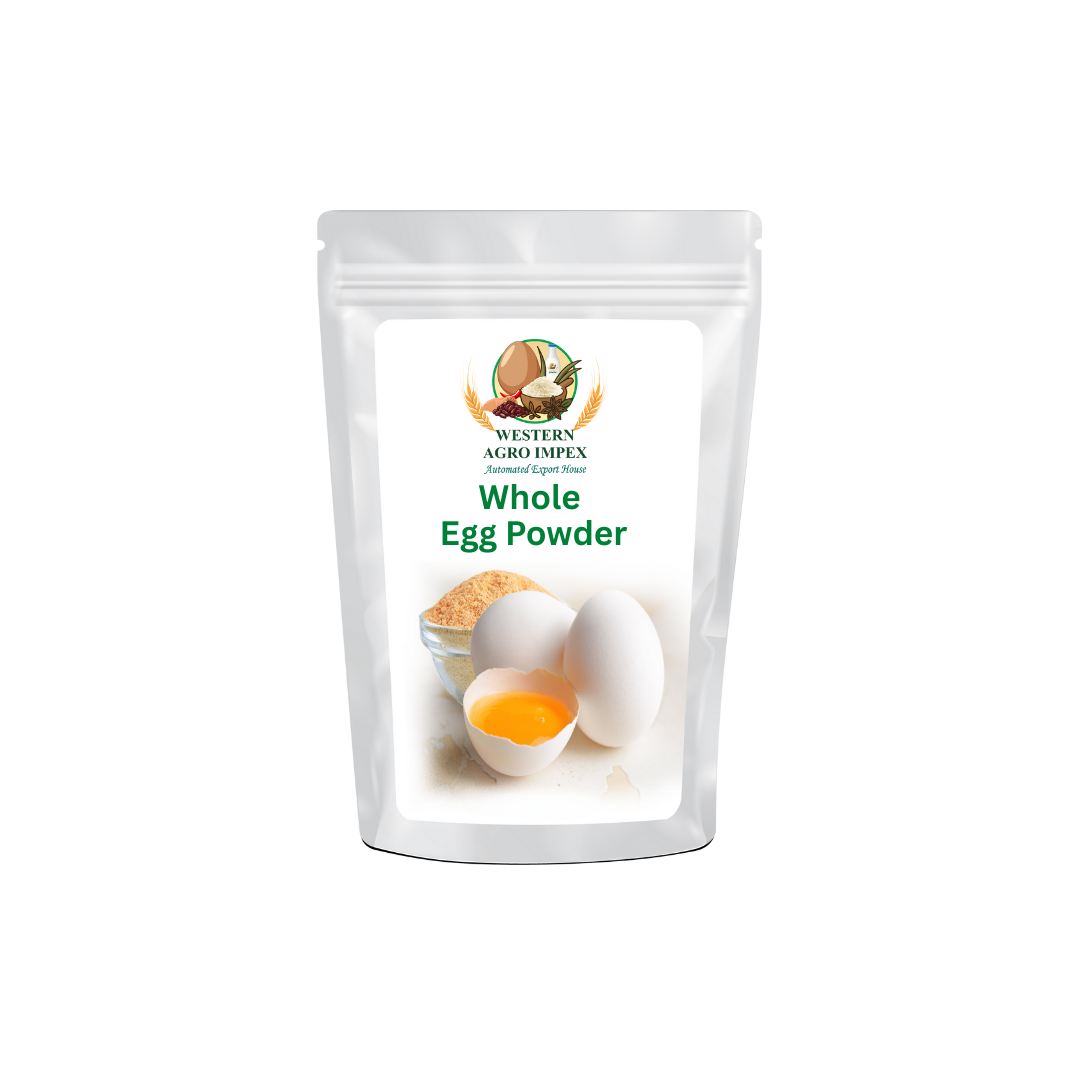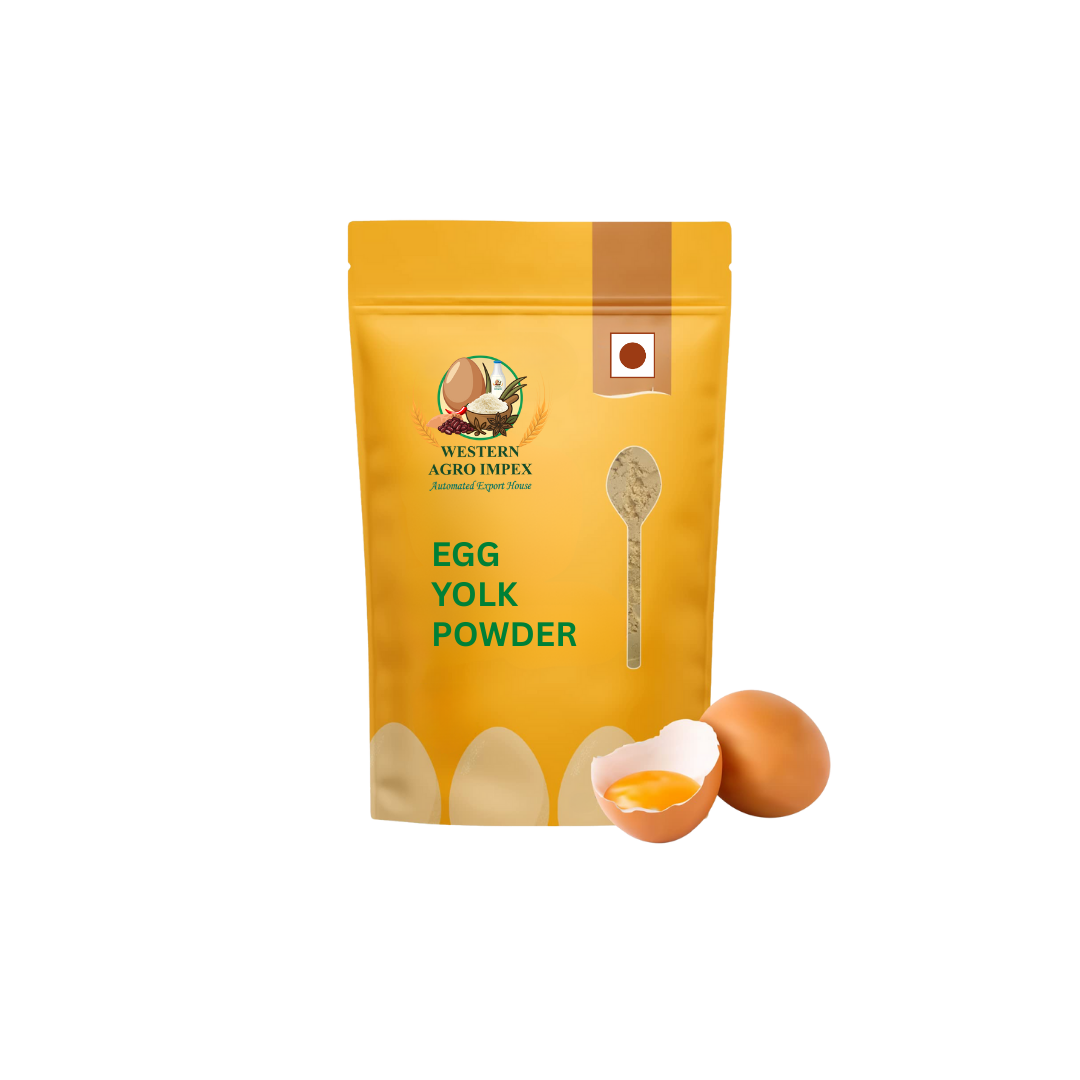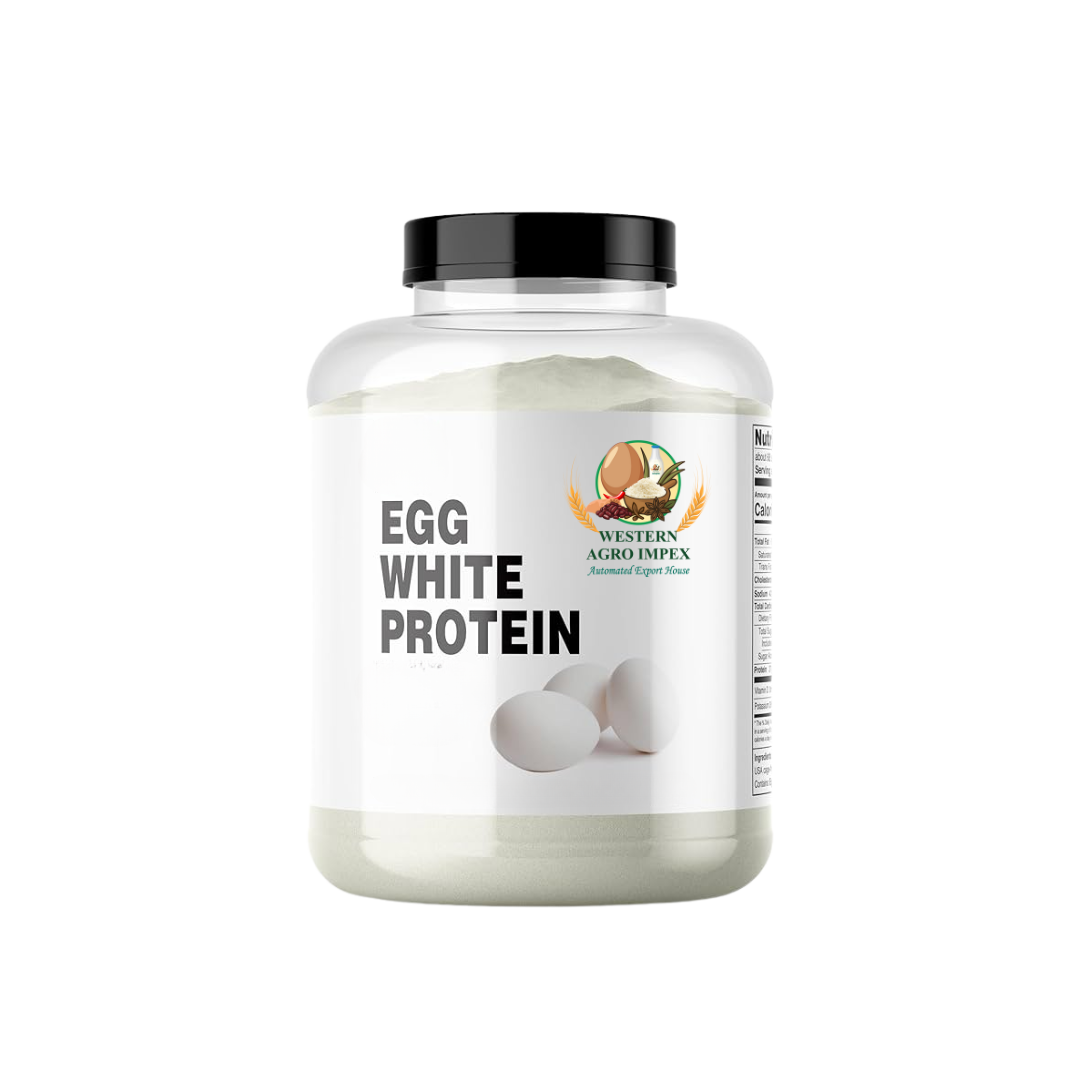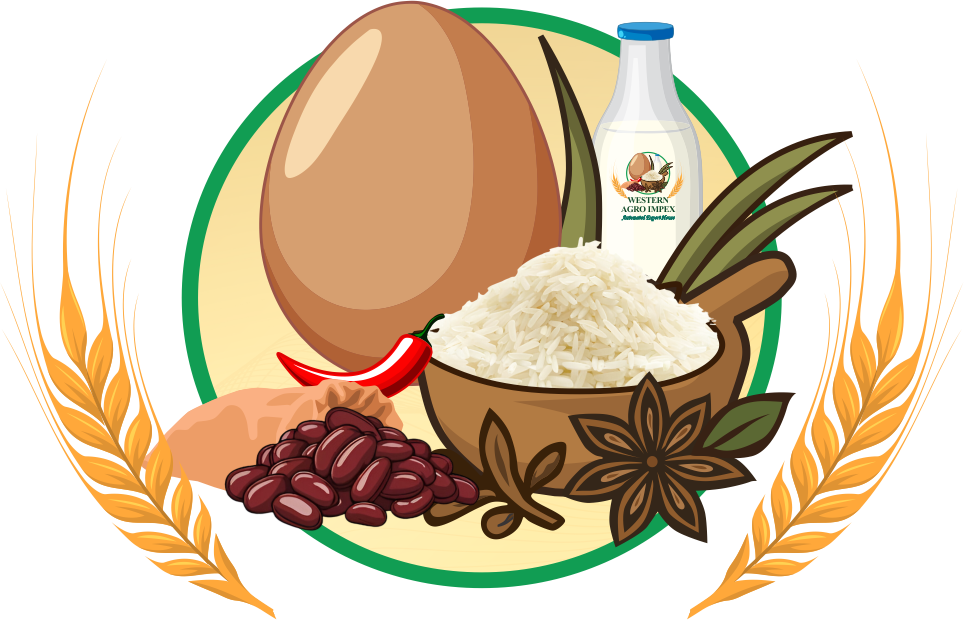EGG POWDER
Egg powder is a dehydrated form of eggs produced through advanced spray-drying or freeze-drying techniques. This process preserves most of the nutritional benefits found in fresh eggs while significantly extending shelf life and simplifying storage requirements. Due to its lightweight and non-perishable nature, egg powder is highly valued for its convenience and versatility. It is widely used across various food industries, including baking, food processing, and confectionery, where it offers consistent quality and easy handling. Additionally, egg powder reduces the risk of contamination and spoilage, making it an ideal ingredient for large-scale and long-term food production.
Types of Egg Powder



Production Process
Benefits of Egg Powder
Long Shelf Life
Can last up to 1–2 years when stored properly.
Easy Storage & Transport
No refrigeration needed, reducing costs.
Consistent Quality
Standardized for industrial food production.
Versatile Usage
Can be reconstituted or used directly in dry form.
Uses of Egg Powder
Food Industry
- Bakery Products: Used in cakes, cookies, bread, and pastries for structure and leavening
- Pasta & Noodles: Enhances texture and elasticity content
- Confectionery: Used in custards, ice creams, and chocolates for smoothness
- Ready-to-Eat Meals: Added to soups, sauces, and dressings for thickening and nutrition
Food Service & Catering
- Convenient for large-scale cooking (e.g: hotels, restaurants)
- Does not require refrigeration
Health & Nutrition
- Protein Supplements: Added to shakes and sports nutrition products
- Emergency Food Supplies: Used in military rations and disaster relief due to long shelf life
Non-Food Applications
- Cosmetics: Egg proteins used in hair and skin care products
- Pharmaceuticals: Used in vaccine production (e.g., flu vaccines grown in eggs)
EGG WHITE PROTEIN
We are excited to announce the launch of our premium egg white protein powder – a revolutionary clean protein designed for fitness enthusiasts, athletes, and health-conscious consumers.
Made from 100% pure egg albumen, our protein powder delivers 24g of high-quality protein per serving, with:
- Zero added sugar
- No lactose
- No gluten
- Low fat


Delicious Flavors
- Chocolate
- Coffee
- Mango
- Strawberry
It is easily digestible, fast absorbing, and packed with essential BCAAs – the perfect choice for muscle recovery, strength, and overall wellness.
Our protein is smooth, easy to mix, and naturally nutritious.
